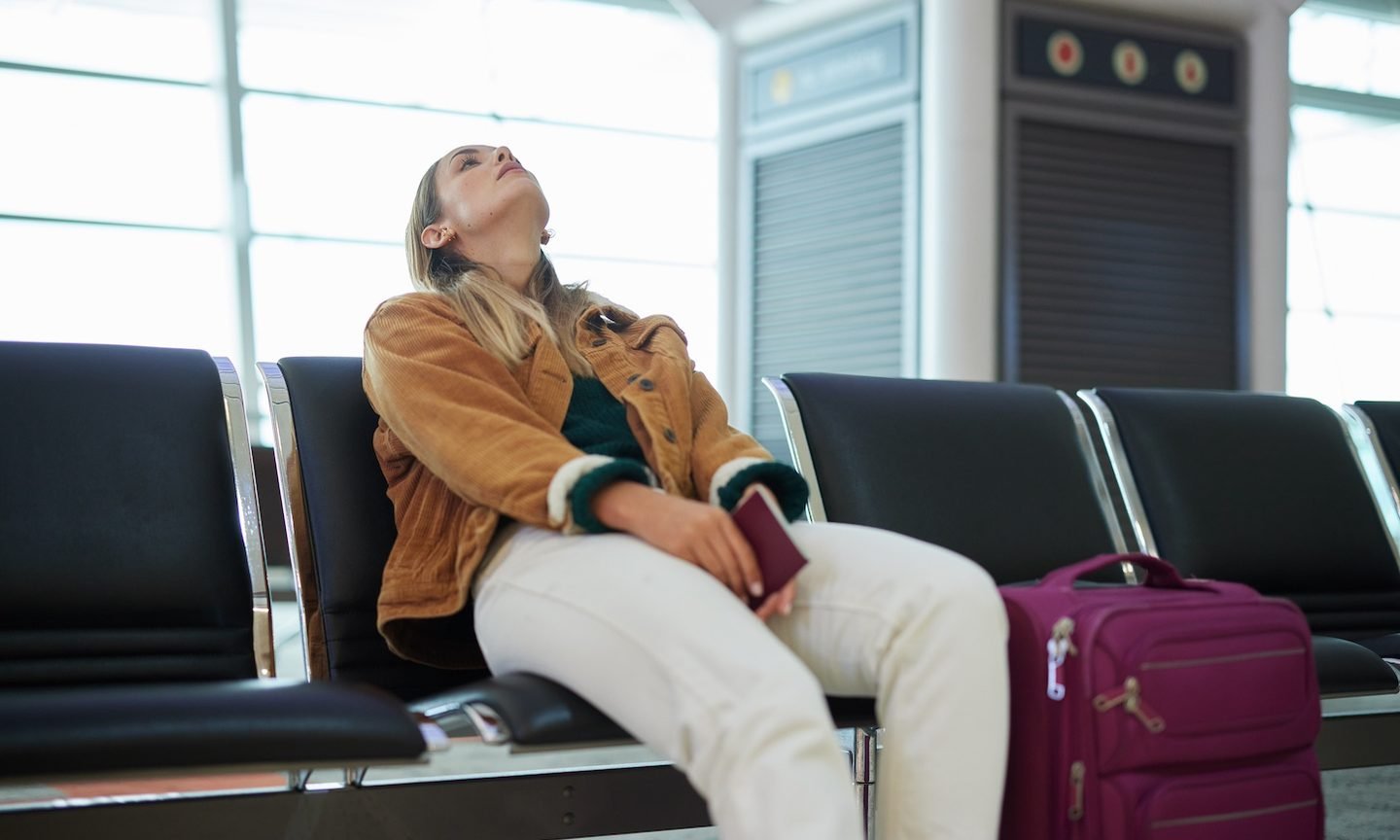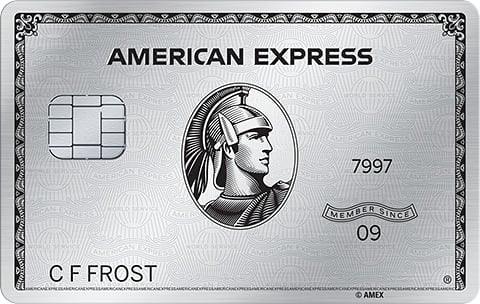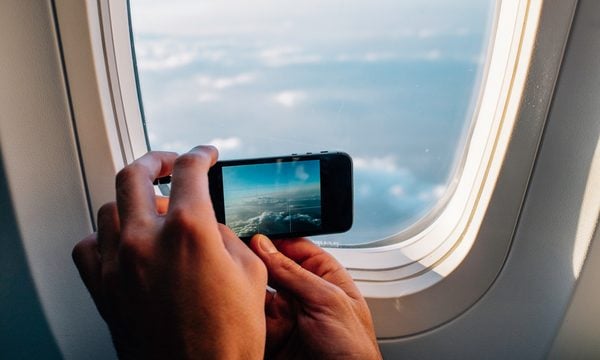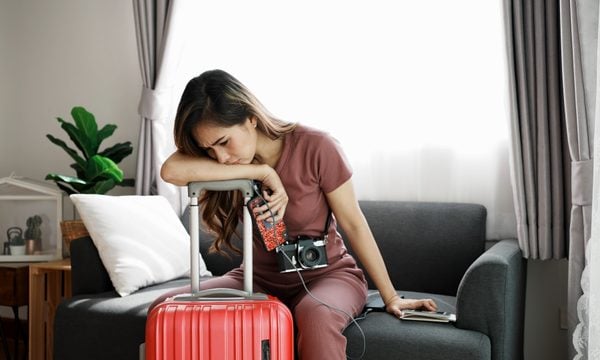What to Do If You Miss Your Flight
If you miss your flight, contact the airline to explore options. A polite and patient approach can get you far.

Many or all of the products on this page are from partners who compensate us when you click to or take an action on their website, but this does not influence our evaluations or ratings. Our opinions are our own.
It has happened to the best of us: oversleeping, a hotel forgetting the wake-up call, snarled traffic, waiting in long security or immigration lines, weather disruptions and delayed connecting flights. While "What happens if I miss my flight?" is a common question, the answer isn't, since it depends on the circumstances of why you missed the flight.
To miss a plane can be a frustrating experience, but it’s not necessarily a lost cause. There is recourse — from refunds to free rebooking options — although certain possibilities may not apply in every situation. For instance, if an airline cancels your flight, different rules and compensation options are available.
Here's a look at the variety of circumstances and what to do if you miss your flight.
Get the 'Cheat Codes' to Cheaper Travel
Unlocking the secret to saving a ton on travel is easier than you think. 📤 Our free newsletter shows you how in 5 min. or less.

Common causes of missing a plane
At-fault reasons, such as oversleeping, traffic and long check-in lines
If you are unable to make your departure time because you overslept or traffic was backed up, contact the airline (via phone, social media channels or an agent at the airport) as soon as possible, preferably before the plane takes off. Acting quickly is your best chance of getting another flight that day.
Asking to stand by for a later flight is your first priority. Flying standby means that the airline puts you on a waiting list for a flight, but you typically aren't a confirmed passenger until closer to departure time. Your ability to fly out ultimately depends on if there are available seats on the next flight, which isn't always the case.
Standby policies vary by airline and ticket type. For example, Southwest Airlines will list a passenger for standby on the next available flight as long as they arrive at the airport within two hours after their original departure. Southwest doesn't charge change fees, but if you must take a later flight, you may have to pay any fare difference.
🤓 Nerdy Tip
Many airlines freely offer elite status members the ability to stand by for a later flight at the airport. With Delta Air Lines, only Gold Medallion members and above are permitted to travel on same-day standby for a later departure. Basic economy passengers aren't eligible.
If you’re already at the airport, review the departure screens to see what the next options are, and be prepared to pay a change fee or the fare difference. If you’re at home, search online so you know about the other options when you speak with the airline.
Be sure to have the airline’s app because you may be able to handle rebooking directly there (or at least see what the options are for later flights).
Medical emergencies
No matter what, contacting the airline before you miss your flight (or having someone do it on your behalf or as soon as possible) is wise. Airline agents can document the record with details on why you missed the flight for consideration of a refund.
In this case, travel insurance may come in handy, but you will need the appropriate documentation from a medical professional to file with the airline for any applicable refund.
Connection issues, such as long immigration lines and delayed flights
Connections can be a drag. Depending on why you missed the second flight — like long security, immigration and customs lines — if you're en route, have already taken the first flight and the connecting flight was booked on the same ticket, airlines will usually rebook you on the next flight.
If the connecting flight was booked on two separate reservation records (perhaps to save money and find a lower fare), the airline operating the second flight isn't responsible for any delay based on the first flight (even if it were within the airline’s control).
Booking flights on two separate reservation records is risky although it can save some cash. If you choose to do so, be sure to allow a lot of time for the connection (and beware that checking bags may require collecting them at the interim stop — and delays can make this difficult).
Can you ask for a refund if you missed your flight?
If it is your fault for missing the flight, receiving a refund generally isn't an option. It may be worth asking, but most airlines won't return your money, especially if you booked a nonrefundable ticket.
» Learn more: Can you get a refund on a nonrefundable airline ticket?
'Flat-tire rules'
A flat-tire rule is an unofficial policy that some airlines honor. It is an option for travelers who show up at the airport shortly after check-in time or departure, for whatever reason. (Its name suggests that it helps those who have unexpected traffic or transportation issues.)
Airlines use different approaches to accommodate these situations.
Southwest’s two-hour window after the flight departs is the way the carrier handles passengers who show up close to departure time. Delta, meanwhile, handles these types of requests on a case-by-case basis only.
Other airlines have unpublished policies. Generally, if you show up at the airport soon after the original departure, you might be in luck. Be kind, patient and respectful as you request the airline make special accommodations for your situation.
What happens if you miss your flight after checking in?
With online or app check-ins, it isn't unusual to have no-shows at departure time — including people who have already checked in for the flight. This means that gate agents are accustomed to giving away seats just before the flight departs.
If you are already at the airport, you could still miss a flight. Slow security and immigration lines can be a frequent cause (programs like TSA PreCheck and Global Entry or Mobile Passport could help prevent delays). You may hear a page with your name for final boarding, but not all airlines do this.
If you checked a bag for a domestic flight, your bag may travel on the flight without you. This means having to deal with getting your bag at the destination by taking a later flight. If it is an international flight and you have to collect it at customs and recheck it, the bag will stay with you.
In both of these scenarios, airlines will assist by getting you on the next flight although sometimes there will be a fee. Elite status members will have more options than those without status. Basic economy passengers may be less fortunate, but that is a risk when booking a low-cost fare.
What happens if you miss your flight on purpose?
Some travelers may choose to miss a flight on purpose; this is known as "hidden city ticketing." There's a service called Skiplagged that finds these tickets for travelers.
This is frowned upon by airlines, especially when some passengers book a connecting flight to a destination they have no intention of visiting to get a lower airfare.
If you do this, you are at risk of losing your frequent flyer account or being charged a higher fare to cover the original cost of the flights you do take. If you check a bag, your bag will continue on to the final destination.
What tools are helpful if you miss a flight?
Frequent travelers who pay for access to websites like ExpertFlyer will be able to more quickly determine their next steps after missing a flight. For example, American Airlines makes availability for a confirmed flight change visible via Expert Flyer. This can be helpful for AAdvantage members with elite status looking to make a fast confirmed change for later in the day.

If an airline won’t let you rebook later for free — for example on a basic economy ticket — consider using frequent flyer miles. Paying for a last-minute ticket in cash can be quite expensive, but your miles can serve as a backup. Websites like SeatSpy can prove helpful in a time crunch.
Keep in mind that many online travel agencies that show flight options may not include all budget carriers. If your original airline cannot get you on the next flight and you need to buy another, look directly at websites for airlines like Allegiant Air and Southwest. These can be cheaper, even at the last minute.
Can credit card travel insurance help if you missed your flight?
Some credit cards come with travel insurance, which can be a valuable perk when plans go awry.
However, coverage typically won't include oversleeping or procrastination. But insurance may cover situations when you were late to the airport due to public transportation delays, extreme weather or traffic issues not covered by an airline’s flat-tire considerations.
Top cards with travel insurance
Annual fee
$95.
$795.
$895.
$95.
Travel protections (not a comprehensive list)
• Trip delay: Up to $500 per ticket for delays more than 12 hours.
• Trip cancellation: Up to $10,000 per person and $20,000 per trip. Maximum benefit of $40,000 per 12-month period.
• Trip interruption: Up to $10,000 per person and $20,000 per trip. Maximum benefit of $40,000 per 12-month period.
• Baggage delay: Up to $100 per day for five days.
• Lost luggage: Up to $3,000 per passenger.
• Trip delay: Up to $500 per ticket for delays more than 6 hours.
• Trip cancellation: Up to $10,000 per person and $20,000 per trip. Maximum benefit of $40,000 per 12-month period.
• Trip interruption: Up to $10,000 per person and $20,000 per trip. Maximum benefit of $40,000 per 12-month period.
• Baggage delay: Up to $100 per day for five days.
• Lost luggage: Up to $3,000 per passenger.
• Trip delay: Up to $500 per trip for delays more than 6 hours.
• Trip cancellation: Up to $10,000 per trip. Maximum benefit of $20,000 per 12-month period.
• Trip interruption: Up to $10,000 per trip. Maximum benefit of $20,000 per 12-month period.
• Lost luggage: Up to $3,000 per passenger.
Terms apply.
• Trip delay: Up to $500 per ticket for delays more than 12 hours.
• Trip cancellation: Up to $10,000 per trip. Maximum benefit of $20,000 per 12-month period.
• Trip interruption: Up to $10,000 per trip. Maximum benefit of $20,000 per 12-month period.
• Baggage delay: Up to $100 per day for five days.
• Lost luggage: Up to $3,000 per passenger.
Learn more
Just remember to keep proof or any other records about the reason you were late for a flight to file with any travel insurance.
I missed my flight! A recap of what to do
You’re not the only person to have ever missed their flight for reasons within or beyond their control. Some airlines will get you on the next available flight (even if on standby). Others may charge a fee.
Your first steps should be to contact the airline, alert them that you are missing your flight and determine the next best alternative. It may be getting a standby flight, paying a change fee or asking for a travel credit. Not all of these options are possible for each ticket type (basic economy tickets are the most restrictive). But, being polite, patient and informed can work in your favor when you miss your flight.
To view rates and fees of the American Express Platinum Card®, see this page.
Insurance Benefit: Trip Delay Insurance
- Up to $500 per Covered Trip that is delayed for more than 6 hours; and 2 claims per Eligible Card per 12 consecutive month period.
- Eligibility and Benefit level varies by Card. Terms, Conditions and Limitations Apply.
- Please visit americanexpress.com/benefitsguide for more details.
- Underwritten by New Hampshire Insurance Company, an AIG Company.
Insurance Benefit: Trip Cancellation and Interruption Insurance
- The maximum benefit amount for Trip Cancellation and Interruption Insurance is $10,000 per Covered Trip and $20,000 per Eligible Card per 12 consecutive month period.
- Eligibility and Benefit level varies by Card. Terms, Conditions and Limitations Apply.
- Please visit americanexpress.com/benefitsguide for more details.
- Underwritten by New Hampshire Insurance Company, an AIG Company.
Insurance Benefit: Baggage Insurance Plan
- Baggage Insurance Plan coverage can be in effect for Covered Persons for eligible lost, damaged, or stolen Baggage during their travel on a Common Carrier Vehicle (e.g., plane, train, ship, or bus) when the Entire Fare for a ticket for the trip (one-way or round-trip) is charged to an Eligible Card. Coverage can be provided for up to $2,000 for checked Baggage and up to a combined maximum of $3,000 for checked and carry-on Baggage, in excess of coverage provided by the Common Carrier. The coverage is also subject to a $3,000 aggregate limit per Covered Trip. For New York State residents, there is a $2,000 per bag/suitcase limit for each Covered Person with a $10,000 aggregate maximum for all Covered Persons per Covered Trip.
- Eligibility and Benefit level varies by Card. Terms, Conditions and Limitations Apply.
- Please visit americanexpress.com/benefitsguide for more details.
- Underwritten by AMEX Assurance Company.
How to maximize your rewards
You want a travel credit card that prioritizes what’s important to you. Here are some of the best travel credit cards of 2026:
- Flexibility, point transfers and a large bonus: Chase Sapphire Preferred® Card
- No annual fee: Wells Fargo Autograph® Card
- Flat-rate travel rewards: Capital One Venture Rewards Credit Card
- Bonus travel rewards and high-end perks: Chase Sapphire Reserve®
- Luxury perks: American Express Platinum Card®
- Business travelers: Ink Business Preferred® Credit Card
Article sources
NerdWallet writers are subject matter authorities who use primary,
trustworthy sources to inform their work, including peer-reviewed
studies, government websites, academic research and interviews with
industry experts. All content is fact-checked for accuracy, timeliness
and relevance. You can learn more about NerdWallet's high
standards for journalism by reading our
editorial guidelines.
Limited Time Only: Earn $1,000 Toward Travel!
Capital One Venture Rewards Credit Card 
Travel

For a limited time, the
Capital One Venture Rewards Credit Card is offering new cardholders an especially rich bonus: Enjoy $250 to use on Capital One Travel in your first cardholder year, plus earn 75,000 bonus miles once you spend $4,000 on purchases within the first 3 months from account opening - that’s equal to $1,000 in travel!
More like this
Related articles












